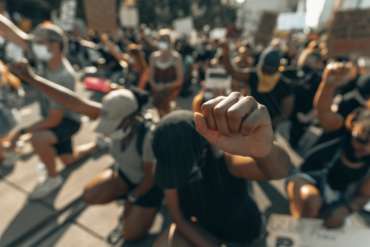The 4th of July, a day widely celebrated as Independence Day in the United States, holds a complex and nuanced meaning for different individuals and communities. While it commemorates the country’s declaration of independence from British rule, it is essential to acknowledge that the experience of freedom has not been universal, particularly for black people who have historically faced systemic oppression and continue to fight for justice and equality.
For black people, the 4th of July may evoke a range of emotions, including frustration, pain, and a sense of disillusionment. It serves as a stark reminder of the stark disparities that persist in American society, where the promises of liberty and justice for all often ring hollow for marginalized communities.
The struggle for freedom and equality has been an ongoing battle for black people, marked by centuries of slavery, institutional racism, and systemic injustices. The legacy of this history continues to shape the lived experiences of black individuals and communities, as they confront the realities of racial inequality, police brutality, economic disparities, and limited access to quality education and healthcare.
In the face of these ongoing challenges, the 4th of July can feel like a celebration that does not truly reflect the reality of black lives in America. It becomes a painful juxtaposition between the ideals of freedom and the persistent struggles for social, political, and economic liberation.
For many black people, the fight for freedom is not symbolic but tangible, as they raise their voices, protest, and demand change with bloodied fists. It is a continuous struggle for dignity, justice, and equal rights that extends far beyond a single day of commemoration.
It is crucial to recognize that acknowledging the limitations of the 4th of July does not diminish the contributions and sacrifices of those who have fought for progress and freedom throughout American history. Rather, it is an invitation to critically examine the gaps between the ideals espoused by the nation and the lived experiences of its diverse population.
Moving forward, it is incumbent upon individuals, communities, and institutions to engage in the ongoing work of dismantling systemic racism and creating a more inclusive and equitable society. This requires not only reflection and dialogue but also concrete actions that address the root causes of inequality and ensure that freedom and justice are accessible to all.
Ultimately, while the 4th of July may carry different meanings for different people, it is essential to recognize and uplift the voices of those who are still fighting for freedom and equality with bloodied fists. By listening, learning, and working together, we can strive towards a future where the promise of independence and justice is truly realized for all individuals, regardless of their race or background.

